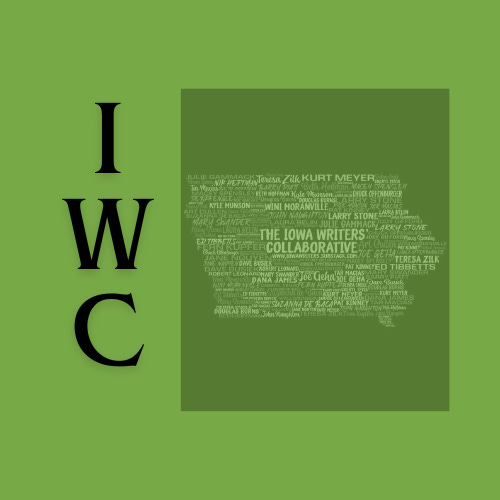I cannot claim to be a student of rhetoric, but I do note interesting features in languages and pay attention to how political and moral language is used. One of those features is the fact that words can have a cognitive content, but they also have an emotive content.
For example, suppose that someone makes a statement with which you disagree. One way to register your disagreement might be to say, “nonsense.” Somewhat less familiarly, if you were British you might say “rubbish.” Both indicate, politely, that you don’t accept what the other person is saying.
However, consider what has become a rather common, stronger way of expressing your disagreement: “bullshit.” Comically but understandably, when I lived in Britain long ago and my friends there heard an American say “bullshit,” I could see that they were taking the word literally and were enduring a vivid mental image of steaming animal waste.
What’s the difference between saying “nonsense” and saying “bullshit”? They both have the same cognitive content—the speaker is disagreeing with whatever was just said—but the latter word has (or used to have, before the usage of the word became so common) an emotive content that the former does not. “Nonsense” is polite; “bullshit” rhetorically is hitting someone over the head with a baseball bat.
All this is well and good, but why do I make note of it in a column called “Let’s Talk Politics”? To be sure, per Reuters, “Republican nominee Donald Trump has called [Kamala Harris] ‘crazy,’ ‘nuts’ and ‘dumb as a rock,’" but this is overt. Juvenile name-calling aside, my interest here is the more subtle function that political words often serve.
Think, for example, of the terms pro-life and pro-choice. Legally speaking, the issue here is whether one opposes or favors a right to abortion. Admittedly, saying “pro-abortion-rights” or “anti-abortion-rights” is quite a mouthful. But “pro-life” and “pro-choice” have more of that emotive content. In the abstract, who’s opposed to “life”? Who’s opposed to “choice”?
Now, consider how often we hear Republicans use the words “radical,” “communist,” or “socialist” to describe Democrats. According to the Washington Post (July 20), for example, “Speaker Mike Johnson (R-La.) warned that the radical left seeks to tear down American values and ‘remold us into some sort of borderless, lawless, Marxist, socialist utopia’” (italics added).
Closer to home, the July 21 Des Moines Register quotes Representative Ashley Hinson as saying, “I am confident President Trump will beat Kamala Harris or any other left wing radical they run against him” (italics added again). Trump himself, per The New Yorker, calls Kamala Harris a “radical-left lunatic.”
When a conservative calls liberals radical leftists, or a liberal calls conservatives fascists, the emotive attempt in both cases is subtly to foster not policy arguments, but, instead, the subliminal emotions of distrust, suspicion, and even fear.
Indeed, consider the peculiar Republican inability or refusal to use the word “Democratic” regarding their electoral opponents. We almost always hear Republicans referring to the “Democrat party” or “Democrat policy” or “Democrat president,” when the grammatically correct term in each case would be “Democratic.” It is clear what such Republicans are referring to, but there is an emotive jab and insult—a hint of illegitimacy—in their phrasing.
Democrats and liberals themselves are not immune to this. We often hear them refer to Republicans among others as fascists, a term with its own overt emotive force.
The two terms that bother me the most, however, are the variants of “left-wing” and “right-wing”—“the left” and “leftist” and “the right” and “rightists.” Unfortunately, print and especially broadcast reporters and anchors have adopted this intellectually lazy terminology as well.
Politically speaking, almost no terms have more threatening emotive content in American political culture than “radical,” “the left,” ”far left,” and “leftist.” Calling a liberal a leftist is to imply that liberalism is no more than a quickly passing point on the slippery slope to socialism and communism.
My argument, to the contrary, is that liberalism is not socialism in sheep’s clothing, nor, for that matter, is conservatism fascism. “Left” and “right” are terms that apply more to European politics than to American politics. And if the true left in America had even 1% of the numbers and power conservatives attribute to them, they would be absolutely thrilled.
As writer Finley Peter Dunne’s character Mr. Dooley famously stated, “Politics ain’t beanbag.” It’s a tough business, and properly so. But to disagree is one thing; to demean, denigrate, and ridicule is another. The latter intentions don’t serve the voting public.
So, language matters, but it does so not just to inform, persuade, and inspire, purposes of fundamental importance in a democracy. It also often matters insidiously, in that it is employed not primarily to inform, but to manipulate. To inform and persuade is about principle and policy; to manipulate is about power.
That undermines the premise central to our political system that the average citizen can be trusted to make informed decisions. In our mass-media age, I’m afraid there’s not a lot we can do about this problem, except to try to be alert to subtle attempts to manipulate people linguistically.
“Caveat emptor”—"let the buyer beware”—applies to your political wallet as well as to your money wallet. Guard both carefully.




Just a follow-up to my original post: note the language the MAGA folks are using to characterize Tim Walz and the Democratic ticket generally.
Respectfully, the media bothsidesing the issue is part of the problem in that it normalizes MAGA. MAGA is fascism defined. Look it up. https://www.merriam-webster.com/dictionary/fascism . Then read Project 2025 and listen to Trump's own words. Dems and the media not calling MAGA what it truly is--fascism--is complicit. Call it what it is.